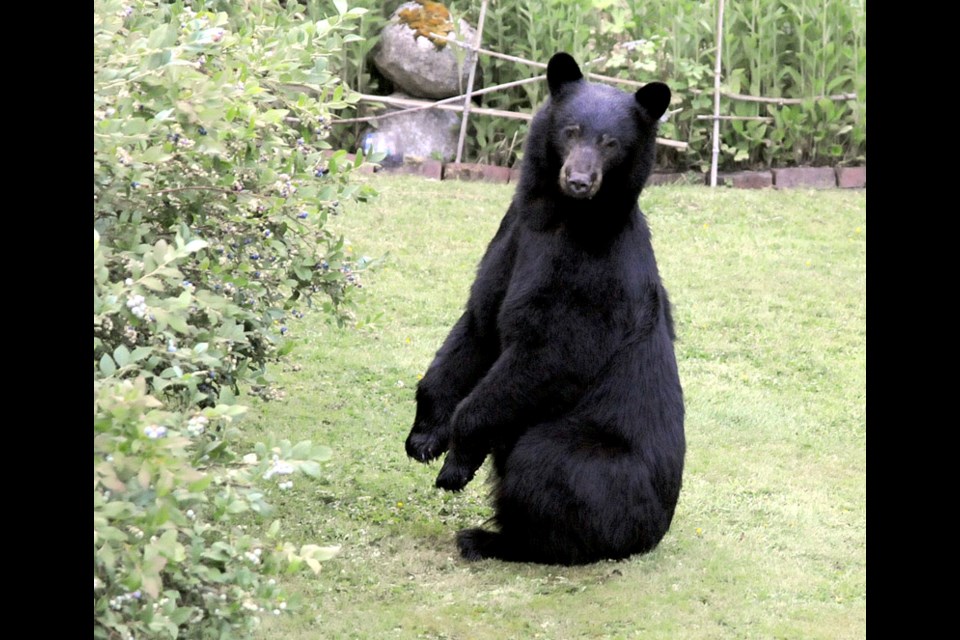Christine Miller of North Shore Black Bear Society is leaving her post at the end of the year.
Miller says she became truly aware of the tenuous relationship between bruins and humans long before North Shore municipalities got tougher on bear baiting behaviour or the backwoods became the hot spots of outdoor recreation they are today. The year was 1999, when 39 bears were killed on the North Shore and an organization then known as the North Shore Black Bear Network was formed.
The network was composed of an informal group of concerned citizens and volunteers who worked to orchestrate better communication between residents and the B.C. Conservation Officer Service and local police, in order to make sure bears and humans could be together on the North Shore – while staying far apart.
When the network registered as a non-profit society in 2005, Miller started volunteering and eventually became the organization’s executive director.
“It started off as a curiosity,” says Miller, who was inspired by the simple fact that a bear's life could be saved through education about wildlife attractants and bear safety in residential areas. “When I realized that bear deaths were preventable, I felt like I could make a difference here.”
This past year, North Shore Black Bear Society received close to 1,150 reports of sightings of bears in the area, according to Miller – but there have been fewer deaths compared to 1999, even if every summer a rash of human and bear conflicts leads to at least some bruins being put down.
Four bears in West Vancouver and three in North Vancouver were euthanized or killed on the North Shore this year, the COS has confirmed.
Miller started small when she joined the society in 2005. She would door-knock alongside a canvasser with conservation foundation WildsafeBC and deliver education to residents about bear attractants.
Eventually, the society partnered with North Shore municipalities, which provided grant money to expand their educational outreach to schools and community events, and even make sure that newcomers to Canada were bear aware.
“We’ve gone from a lack of knowledge of what attracts wildlife to residential areas and what to do if you encounter a bear to, through the education programs, we were successful in promoting respect and understanding of bear behaviour and bear biology,” says Miller. “That resulted in people having a willingness to accept their responsibilities for living in bear country and being willing to adjust their behaviours accordingly.”
While people have definitely improved their behaviours over the years, there’s certainly been some bumps along the way, notes Miller.
In between bouts of delivering Bear In Area signs when sightings cropped up in neighbourhoods, as well as partnering with bylaw officers to make sure folks weren’t putting their garbage curbside too early, it was always difficult to convince people to freeze their compostable items before putting them to the curb, she says.
Miller also notes the District of North Vancouver’s new garbage collection system that was rolled out in 2017 had unintended consequences. Because the new carts were so much bigger, many people could no longer keep their garbage cans stored in garages or other spaces, so they kept them outside instead, says Miller.
However, the district has really stepped up with its latest bear bylaw, notes Miller. In October, the district passed a new bylaw that allows for a $100 fine instead of a warning for people who leave their garbage bins at the curb outside permitted hours. That fine gets bumped up to $500 for subsequent offences.
“The district really stepped up to the plate,” says Miller, who maintains the enforcement is key to the education work that the society does and will continue to do.
Looking ahead, Miller says she plans to take on more of an activist role now that she is not working directly with the province or COS.
“What behaviours should lead to a bear to be killed?” posits Miller. “I think it’s time for those procedures, polices and the matrix to be reviewed carefully.”
Miller says that most of all she will miss conducting the education work that allowed her to interact with so many North Shore residents over the years.
During a year-end presentation to the district earlier this month, council members sang Miller’s praises for her years of work and wished her well in retirement.
“Thank you for your leadership and passing the new attraction bylaw. The adoption and enforcement of this bylaw will be a win for residents and bears, and it’s a very happy note for me to retire on,” she said.



